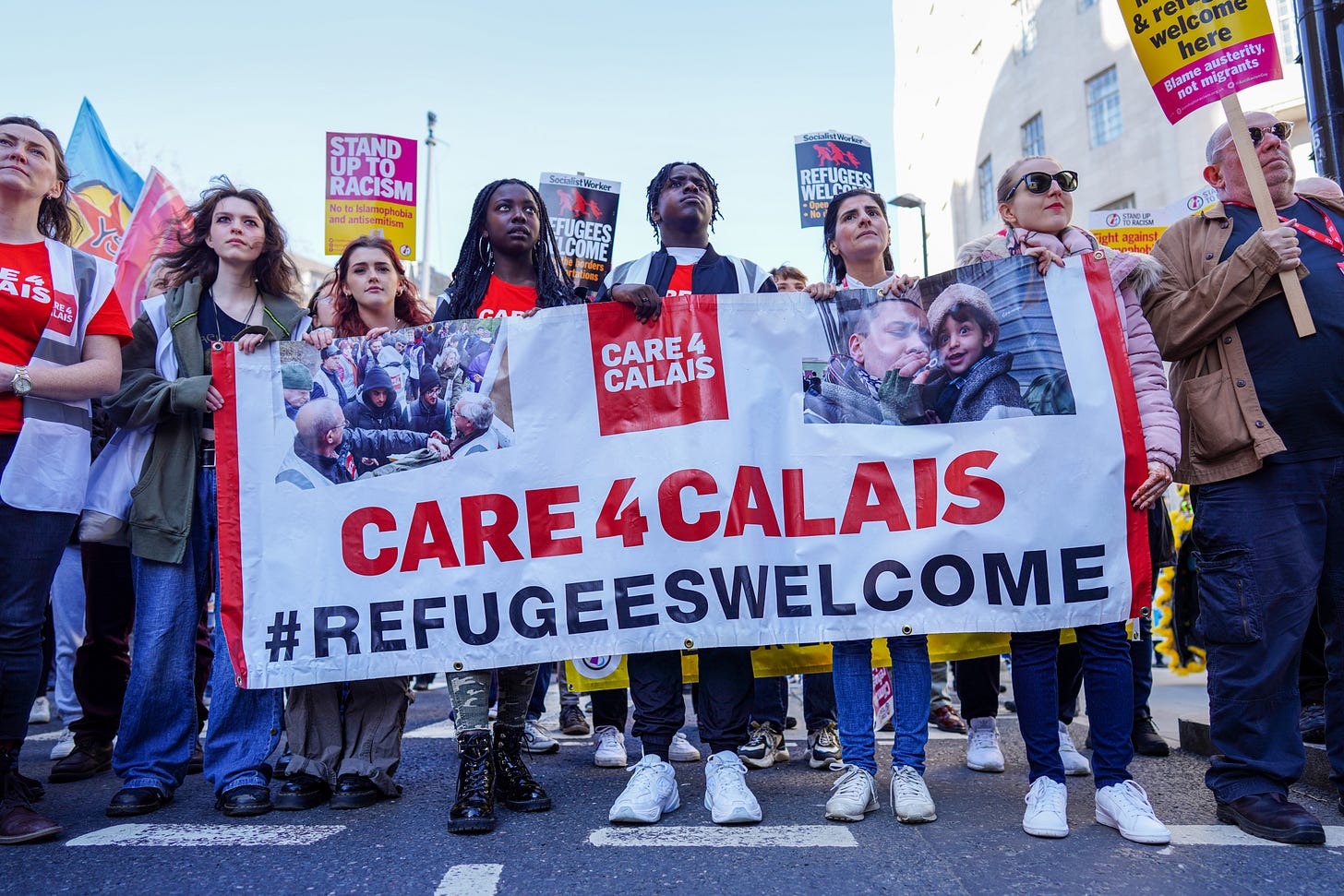Porous borders make us less safe: the proof
Disturbing new data exposes the real-life consequences of mass immigration
There are many sound reasons to oppose mass immigration. The strain on community cohesion. The pressure on public services and infrastructure. The potential for wage suppression caused by an oversupply of labour. The gradual erosion of a shared and unifying national culture. These are just some of them.
Once upon a time, most activists on my own side of politics, the left, understood all this. They supported immigration and knew that it brought benefits. But they also recognised that rapid and large-scale inflows of workers – and, in some cases, non-workers – had the capacity to cause profound social and economic disruption in local communities, as well as to inhibit the government’s ability to make sufficient provision in the areas of welfare, housing and the like. For the system to work effectively, the numbers entering had to be kept modest and manageable.
Support for open borders was, by contrast, traditionally a fringe position on the left – the preserve largely of Trotskyists, anarchists and hyper-liberals. Few within the mainstream left attached any real merit to that position. Yet, these days, those on the left – people like me – who hold true to the position of strong border controls and strict limitations on numbers are looked upon as museum pieces (or worse) while those who believe in freedom of movement (even if they are less inclined than they once were to say so publicly) are deemed the sensible and enlightened ones.
Back in the 1990s, the UK’s annual net migration figure usually ran no higher than the tens of thousands. Even then, the system was never especially tightly regulated – but it was regulated enough to ensure that public confidence in it was largely maintained. It was no coincidence that, during that decade, immigration was not particularly high on the list of voter priorities; thank goodness our society had moved on from the dark days of the 1970s when the National Front was a regular feature of the political scene and its thugs were marching through towns with large immigrant populations.
But with the emergence of the new global market, EU enlargement, and a general trend at the top of politics towards radical progressivism, and with everything that these things meant in the way of deindustrialisation and far-reaching demographic change, immigration once more became a point of contention in our national discourse. And so it has remained ever since.
Those of us who hail from working-class communities know the drill only too well. Raise concerns over the pace and extent of change, and you’re an uncouth nativist. Possibly even a racist. Either way, you’re plainly too uncultivated to appreciate the enrichment – both financial and cultural – that liberal immigration policies bring.
It seems never to occur to the arrogant sophisticates who are so quick to dismiss such concerns that they do not, in fact, derive from bigotry or intolerance, but are usually born from the acute sense of disorientation and bewilderment that comes with having quick and profound social, cultural and economic transformation visited upon one’s community.
Moreover, the concerns are often a wholly rational response to a new material reality. Do calls for tighter immigration controls from those who experience stunted wage growth on account of a sudden explosion of cheap labour in their industries not carry some legitimacy? Similarly, is it not entirely reasonable to be concerned at the importation of thousands of (frequently undocumented) young men from societies which are characterised by higher levels of violence and lawlessness and in which regressive – and sometimes barbaric – cultural practices are the norm?
Are such concerns always inherently invalid? Were, for example, local residents in Barking and Dagenham – the London borough in which I lived for 35 years – justified in their fear that an influx of migrants from Albania might increase the crime rate locally? Or were they simply exhibiting xenophobia? In light of the stories that subsequently emerged revealing how Albanian gangsters had wreaked havoc in the borough, I would say it was the former.
And was it wrong for people to conclude in the wake of various terror attacks carried out by Islamists – a phenomenon unknown in our country until 20 years ago – that the security of long-term British citizens was being imperilled by our porous borders?
Of course it wasn’t. In fact, recently-published data shows why communities across Britain are completely right to feel unease about the potential for higher crime rates as a result of mass immigration.
Keep reading with a 7-day free trial
Subscribe to Paul Embery to keep reading this post and get 7 days of free access to the full post archives.


